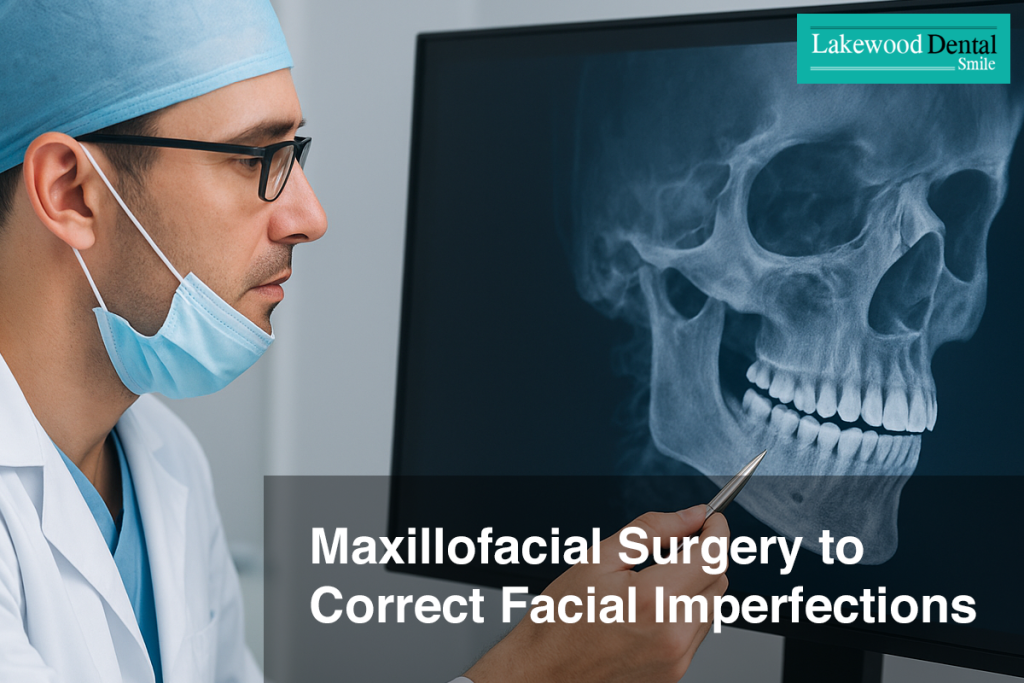
Maxillofacial surgery is a highly specialized field that combines medical and dental expertise to treat conditions affecting the face, mouth, jaws, and neck. This advanced specialty not only restores function but also enhances appearance and confidence. For patients living with facial imperfections, trauma, or congenital conditions, maxillofacial surgery can be truly life changing.
Why Maxillofacial Surgery Matters
Oral health is closely connected to overall well-being. Misaligned jaws, facial injuries, or congenital deformities can affect not only appearance but also essential daily functions such as chewing, speaking, and even breathing. Maxillofacial surgery helps restore balance, improve oral health, and enhance facial aesthetics. By addressing these complex concerns, it prevents long-term complications and improves patients’ overall lifestyle.
7 Life-Changing Treatments in Maxillofacial Surgery
- Dental Implants and Bone Reconstruction
Dental implants are one of the most common procedures performed by maxillofacial surgeons. When patients lose teeth, implants act as stable replacements that look and function like natural teeth. In cases where jawbone density is insufficient, surgeons perform bone grafting to ensure implants are secure and long-lasting.
- Facial Trauma Repair
Accidents and injuries often lead to fractures, dislocations, or deep cuts in the face. Surgeons repair broken bones, realign jaws, and restore soft tissue structures. They also treat complex cases involving the eye sockets, cheekbones, or nasal area. Restoring both form and function is key, ensuring patients recover with minimal scarring and maximum comfort.
- Treatment of Pathological Conditions
Cysts, tumors, and infections of the jaws or salivary glands can threaten both oral health and overall well-being. Maxillofacial specialists remove these conditions carefully to prevent further damage while preserving as much healthy tissue as possible.
- Reconstructive and Corrective Surgery
When trauma, disease, or prior surgery causes bone or tissue loss, surgeons step in with reconstructive solutions. Tissue grafts, skin transfers, and corrective jaw procedures restore harmony to the face. For patients with bite problems or misaligned jaws, corrective jaw surgery improves both chewing efficiency and facial appearance.
- TMJ (Temporomandibular Joint) Disorders
TMJ problems can cause jaw stiffness, headaches, and difficulty in speaking or eating. Maxillofacial surgeons treat these disorders through corrective surgery, joint repair, or in extreme cases, joint replacement. Restoring jaw mobility provides long-term relief and improved function.
- Dentofacial Deformities and Birth Defects
Conditions such as cleft lip and cleft palate can greatly affect speech, eating, and self-esteem. Maxillofacial surgery corrects these congenital issues, giving patients improved functionality and a more balanced appearance.
- Cosmetic Enhancements
Beyond medical concerns, many patients choose maxillofacial surgery for cosmetic reasons. Procedures may refine jawlines, correct asymmetries, or enhance overall facial structure—allowing patients to look as good as they feel.
Key Benefits of Maxillofacial Surgery
– Restores chewing, speaking, and breathing functions
– Repairs trauma injuries and prevents long-term complications
– Treats oral infections and pathological growths
– Corrects misaligned jaws and bite problems
– Improves confidence and overall facial harmony
– Provides solutions for congenital deformities like cleft palate
– Enhances long-term oral health and quality of life
FAQs About Maxillofacial Surgery
Is maxillofacial surgery painful?
Thanks to advanced anesthesia and pain-management techniques, most patients experience only mild discomfort. Surgeons also provide detailed after-care instructions to ensure a smooth recovery.
How long does recovery usually take?
Recovery time depends on the type of surgery. Minor procedures may heal within a few days, while more complex surgeries can take several weeks. Regular follow-up visits with your surgeon help track progress.
Is maxillofacial surgery safe?
When performed by a qualified oral and maxillofacial surgeon, these procedures are considered very safe. Surgeons carefully evaluate your medical history and use the latest technology to reduce risks and improve outcomes.
Final Takeaway
Maxillofacial surgery is more than just a medical procedure—it’s a path to restored health, function, and self-confidence. Whether it’s repairing facial trauma, correcting jaw misalignments, treating TMJ disorders, or improving cosmetic appearance, this specialized field offers life-changing results.
📍 At Lakewood Dental Smile in Dearborn, Michigan, our team works with skilled maxillofacial specialists to ensure you receive comprehensive care tailored to your unique needs.




